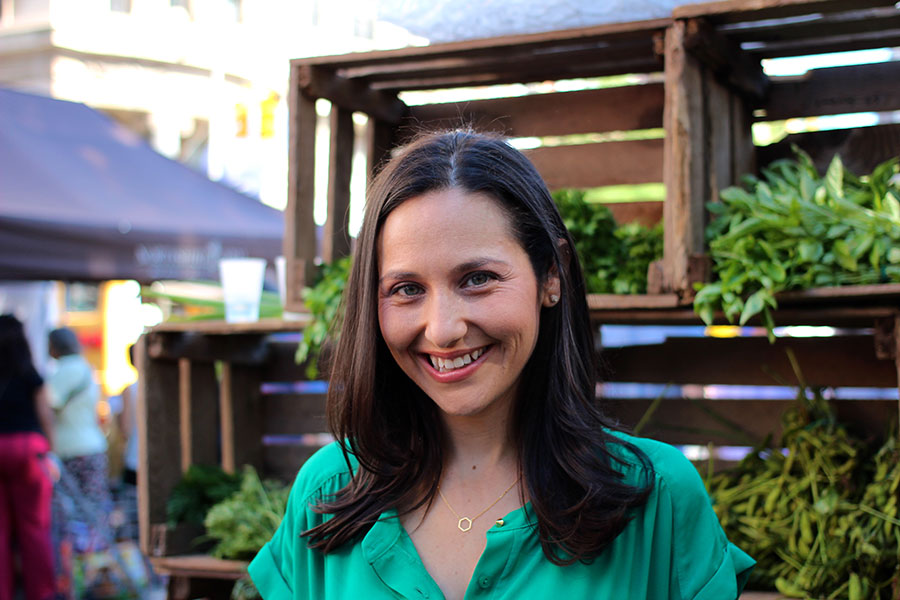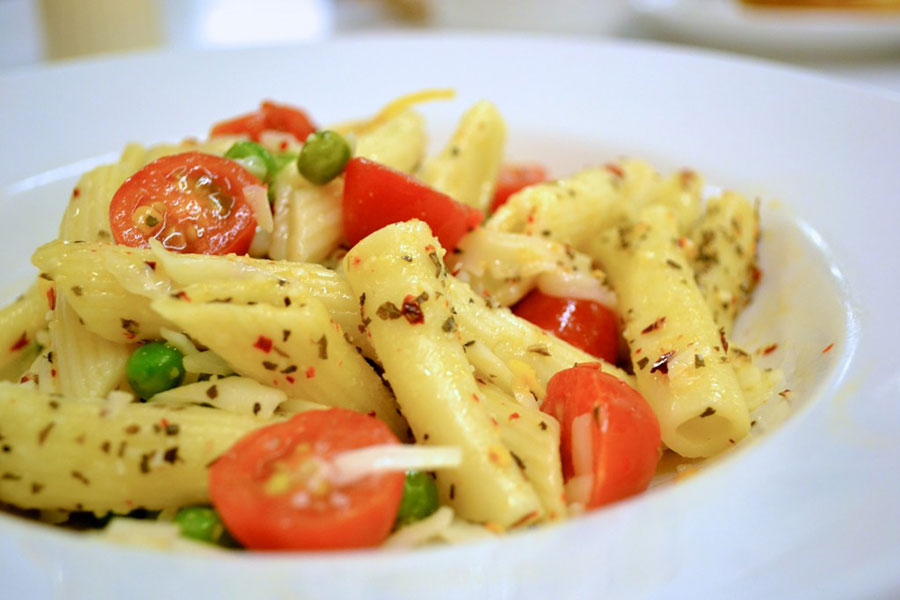“I didn’t choose the meatless life; the meatless life chose me.” Whatever your reasons for deciding to go vegetarian, vegan or anything in between, it is important to remember that there is a spectrum and experimenting with your limits is acceptable. In fact, registered dietitian and author Rachel Meltzer Warren champions the art of finding where you are on the “veg spectrum” in her new book The Smart Girl’s Guide to Going Vegetarian. In it, she debunks common myths surrounding vegetarianism and veganism and provides tips for transitioning your diet including how to use dietary supplements, how and where to eat out as a vegetarian and recipes.
But I’m not a girl…
Despite the title’s focus on girls, Rachel emphasizes that her book is “geared towards the young person, male or female,” so no one should be deterred from reading it. In fact, flipping through the pages reveals it to be a light but educational read packed with cleverly named topics (“Breakfast: Wakey Wakey Eggs (Maybe) and (Fake) Bakey”) and friendly advice. The conversational tone allows the guide to be “nonjudgmental and not preachy” so that the reader feels supported and understands that “being a vegetarian is more of a journey than a destination.”

Photo Courtesy of Rachel Meltzer Warren
Rachel’s Story
For Rachel, though, the journey to vegetarianism was an obvious one. As a child, she mostly ate meat, like hamburgers, for the added (and delicious) bonus of the accompanying French Fries or other sides. Then, one fateful day, her parents decided to furnish their new den with leather couches. Mustering up the determination and defiance typical to a twelve-year old, Rachel protested her parents’ acquisition. Her mother, though, pointed out that despite Rachel’s objection to leather, she continued to eat hamburgers. It was that fateful incident that propelled Rachel to finally decide to quit eating meat altogether. She admits that it was difficult at first, especially because when you are younger, “you are not in control of the foods around you” and your family may not be supportive. However, as time wore on, vegetarianism “turned into a lifestyle” and “old habits wore off.” That is not to say that weren’t a few slip-ups, but they were all part of the process. Luckily, college is a time of experimentation, with the freedom to try vegetarianism and the forgiveness to slip up or decide the veg life is not for you.
Will I still be able to eat in the dining halls?
Even with all the freedom of college, there are limitations, especially with dining hall options and small or non-existent kitchens. Rachel agrees that the biggest challenge is oftentimes limited access. However, she emphasizes the importance of creatively supplementing dining hall offerings. For instance, she recommends carrying bags of nuts or roasted chickpeas (she recommends buying them from The Good Bean or roasting your own) with you in order to garnish your salads or plate of veggies. This technique guarantees a quick, easy, and delicious way to get your protein fill. Rachel also recognizes that some dining halls have fewer options (looking at you, Third North) than others in terms of quality of selection. So, she suggests taking the time to visit different dining halls in order to pick and choose the best ingredients from each so that you can build a balanced meal. While this may take some work, the nutritional benefits are worth it.

Photo by Dan Dao
I’m sick of dining halls, but I’m also a broke college student!
If you’re not on a meal plan or need a break from dining hall food, but fear the cost of a vegetarian diet, Rachel assures that the expense is a common misconception. She realizes there is some fact in the myth though, noting that “vegetarian prepared food can be expensive.” However, she advocates for “going back to the basics and eating whole foods in their simplest forms.” Not only is this option cheaper than a meat-based diet, it also allows for more “natural and whole foods.” Simply accessorizing vegetables and beans with “whole grains, sauces, rice or pasta” is a versatile and easy way to dress-up relatively cheap and filling foods. Another cost-cutting recommendation is to use frozen vegetables, which are cheap and won’t go bad quickly.
Can I still go out to eat?
Luckily, finding vegetarian or vegan restaurants in the city these days is not too difficult. We asked Rachel about her favorites to get a seasoned professional’s tried and true places. Her recommendations are as follows:
1. Candle Cafe – vegetarian and vegan restaurant
2. Taïm – falafel
3. Palà Pizza – “fun, playful” vegan pizza options
4. Chloe’s Soft Serve Fruit – alternative for dairy ice cream
5. The Cinnamon Snail – completely vegan food truck loved by vegetarians and meat eaters alike
The Smart Girl’s Guide to Going Vegetarian is available at Barnes and Noble, Amazon and select independent bookstores. Rachel also runs an accompanying blog, which is a “living, breathing version of the book” intended to create a supportive community. Be sure to also check out the book’s Twitter, Instagram and Facebook.

